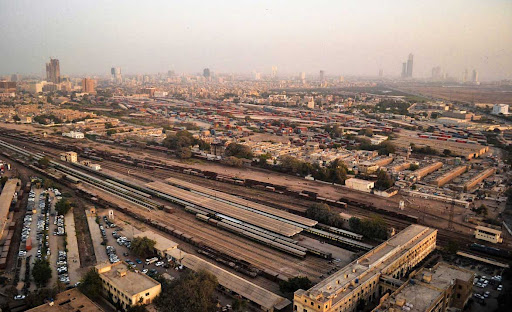
The world witnessed how urban planning and development delivered economic growth in Hong Kong and Singapore in the 1980s and 1990s and in Dubai and Doha in the 2000s. These cities developed proactive, strategic and adequately resourced urban planning system that helped these cities to promote economic growth and productivity.
In contrast, the value of urban planning in accelerating economic growth has not been understood in Pakistan. Urban planning, after the independence, was limited to the development of Master Plans and did not integrate with land ownership, the sale and purchase of land and land usage.
Master Planning development such as DHA City and Bahria Town are considered examples of successful urban planning in Pakistan. Both housing societies make sure that house sales and purchases should be integrated with their zoning plans and regulations. This has helped them minimise the ownership disputes and changes in land use present in other parts of the cities where they are located. It has also helped them to ensure that the proper infrastructure, especially roads, commercial areas and public amenities, is in the right place and properly maintained.
In spite of criticism of DHA City and Bahria Town as gated communities built on rich agricultural areas, they provided a quality lifestyle for the middle and upper-middle class in major cities of Pakistan. These housing societies have transformed Pakistani cities and have played a crucial role in shaping high-quality urban development. If effective and proactive planning at the housing scheme level can contribute to the creation of successful places, then you can imagine what would happen if the whole city adopted urban planning approaches.
The question is why we failed to develop urban planning approaches at the city level. Many academics and researchers have pointed out that Pakistan failed to establish a democratically-led and professionally-managed local government system that recognises the potential of urban planning in delivering place-based economic growth. The current crisis in the supply and cost of housing, traffic congestion, pollution and waste in different parts of Pakistani cities demonstrate the urgent need for an effective local government system, promised by Prime Minister Imran Khan.
My economist friends argue that a self-regulating housing market (with or without local government) would be able to deliver development more rapidly. However, this has not proven to be the case, at least in Pakistan. In fact, market mechanisms without government-led strategic urban planning direction have led us to disintegrated and poorly planned housing schemes — the wrong direction at the metropolitan scale. In the absence of a politically supported local government system, development authorities such as CDA and LDA have limited abilities to ensure stable and continuous urban development that can fulfil local needs.
In Pakistan, the urban planning system not only lacks political support but also has limited capacities to develop strategic direction and practical tools to ensure that urban development is integrated with social and environmental realities. The current system is a project-based system and is building flyovers, elevated highways, providing one-off metro buses and approving haphazard housing schemes in poorly served locations. Therefore, the current system struggles to deliver widely shared economic, social and environmental goals and is counter-productive for the long-term planning of the city.
The current system has repeatedly failed to build the required number and range of houses instead of achieving the political ambitions shown by several Prime Ministers, including the incumbent, Imran Khan. There is an urgent need to take stock of the urban planning systems we have now and what they can deliver, and debate alternative planning futures that might produce better results.
Two main things need to be done.
Firstly, federal and provincial governments need to prioritise the establishment of democratically elected and well-resourced local governments. These local governments need adequate powers and expertise to ensure that better outcomes are consistently delivered despite different political parties holding national and provincial governments.
Secondly, urban planning academics and practitioners in Pakistan need to talk much more about how better economic outcomes can be delivered in the country. This dialogue can be generated by establishing the ‘State of Pakistani Cities dialogue’ series to address the UN Sustainable Development Goal 11 of making cities sustainable and resilient.
We need much stronger leadership in urban planning from the public sector before we expect the private sector to start large-scale housing developments in Pakistani cities. We need serious reforms at the local government level to get the full benefits of urban planning that Dubai and Doha enjoy.
Published in The Express Tribune, October 7th, 2021.

